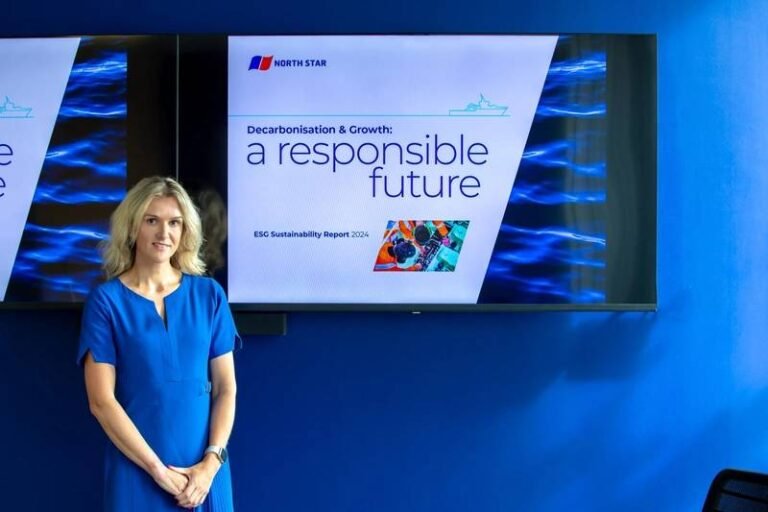North Star Making Strides Towards a Net Zero Fleet
North Star, the UK’s largest integrated ship owner-operator, is making significant progress in its transition to operating a net zero fleet by 2045. With a £400 million ongoing commitment as part of its ESG strategy and a £1.8 million investment in crew training last year, the company is leading the way in sustainability within the maritime industry.
Key Findings from the 2024 ESG Report
The latest ESG report from North Star reveals an 18% reduction in fleet-wide carbon intensity compared to 2022, as well as a 15% year-on-year cut in Scope 1 greenhouse gas emissions. This progress can be attributed to the successful deployment of the company’s first three service operation vessels (SOVs) under long-term charter agreements.
Since 2024, North Star has added a fourth SOV at the Dogger Bank Wind Farm and launched its first methanol-ready SOV under a European contract. The company has three more SOVs scheduled for delivery in 2025 and 2026, further enhancing its sustainable fleet.
Other Notable Insights
- 13% increase in headcount since 2022 to support strategic growth
- Ongoing investment in mental health and wellbeing initiatives
- Improved diversity and inclusion metrics across onshore and offshore teams
- Recognition with prestigious safety awards for health and safety excellence
- Significant EBITDA growth from offshore wind operations
- Substantial investment in new offshore wind vessels
Commitment to Sustainability
Jen Redman, Strategic Projects Manager at North Star, emphasizes that sustainability is integral to the company’s decision-making process. By focusing on fuel-efficient vessels, route planning optimization, and crew training, North Star has made tangible progress in reducing emissions and improving efficiency.
The company’s growing SOV fleet is equipped with hybrid propulsion, battery-ready architecture, and green methanol compatibility, enabling the seamless integration of zero-emission technologies. Advanced technology systems such as AI-enabled vessel planning and predictive maintenance capabilities further enhance operational efficiency.
CEO Perspective
Gitte Gard Talmo, CEO of North Star, acknowledges the company’s responsibility to lead the transition to cleaner and more sustainable operations in the maritime sector. With a focus on measurable decarbonization and digitalization for fleet management, North Star is committed to achieving its goal of 1.5t CO2/GRT/year by 2028.
Investment in Training and Development
In addition to technological advancements, North Star has invested £1.8 million in crew training and development over the past year. This investment supports the transition of seafarers to modern SOVs, with 120 cadets onboarded through the UK’s largest maritime training program.
Conclusion
North Star’s dedication to sustainability, innovation, and crew development sets a benchmark for the maritime industry. With a clear roadmap towards a net zero fleet and a commitment to continuous improvement, the company is poised to lead the way in sustainable shipping practices.

